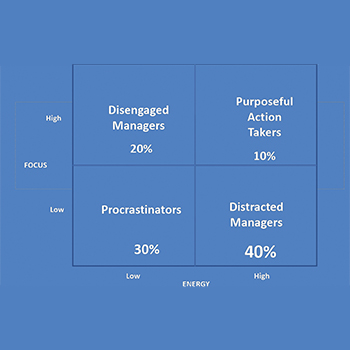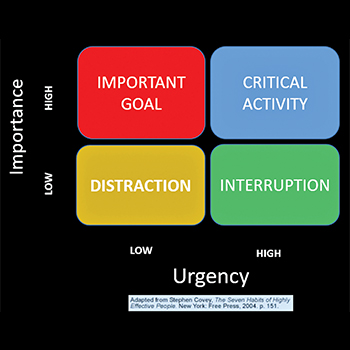Secrets of Success for MBA aspirants

Success in life is all about converting problems into opportunities where there will be win-win for everyone involved. However, to achieve this, one should know the right method, and I call these methods ‘the 10 key commandments’. By adhering to these commandments, management aspirants, will be able develop the ability to think out of the box. These commandments steer effective contribution in completing the picture of success. Read on…
1) The most important aspect to remember
The trap of what will others think? What if I am wrong? Why should I?
In life, opportunities will come equally to all. It is you who has to grab it. The first lesson is: be bold to volunteer in life and be bold to take responsibilities. If you shy away from responsibilities, you will not learn. So, be bold to learn new skills and knowledge, which will definitely come by making mistakes.
Most importantly, never worry about what the world will think about you as long as you are ethical and clear, do not worry what the world is going to tell you. If you think about it, learning will not happen.
2) Trust and commitment

In life, most important aspect is trust. As managers, you have to doubt but keep trust at the centre and doubts at the periphery. Because, if you keep doubting, you will perish, so move from that doubt. Unfortunately, today the media bombards this negativity. Just be positive and trust your decisions, trust yourself—I have taken a decision and I am going to live by it. I will give everything that is needed for this decision that I have taken. Trust yourself and put doubts at the periphery.
After that, when you take up a job, keep commitment at the centre and put expectations at the periphery. Now, the commitment is: I love the job that I do. I will do for the sake because I love doing it and I am passionate about it. Therefore, don't wait for the next promotion or appreciation—do Nishkama karma, don't wait for the results. Life will be beautiful and you will be successful. However, if you keep looking at expectations, next salary, next promotion or next job, commitment will go to the periphery end.
Many successful people keep commitment at the centre and put expectations at the periphery.
So, remember these two things: Trust at the centre and doubt at the periphery; Commitment at the centre and expectations at the periphery. Keep these as your mantra.
Another aspect is — Do a good job, whether it's your studies, work or anything else. Give your 200 per cent effort to the tasks you are assigned. Also, don't keep cribbing, instead focus on doing a good job. You should add value to your work and build networking.
Second, tell your boss you are doing a good job. Boss can be anyone such as your faculty member, your teacher, your parents or the prospective employer—communicate your achievements to your boss.
Third, tell the world you are doing a good job. Share your accomplishments with the world by posting on platforms like LinkedIn. Fourth, repeat step one.
It is your choice whether you want to share your success with others. However, it's important to tell the world that you are doing a good job. If you join an organisation, there might be possibly 100 interns. If you do not communicate them about your achievements, then you will be lost.
I follow this mantra: Do a good job and tell your boss you are doing a good job, share it with the world and repeat step one. Remember this for your life, you will be successful and excellent opportunities will come your way.
So, other lesson is - Trust and Doubt, Commitment and Expectation followed by doing a good job. Remember to communicate about your accomplishments to your boss and the world.
3) Add value and differentiate
If you want to think differently, you have to read and keep yourself updated. Otherwise, you keep thinking that you are different, but you are actually not. You keep imagining that you are thinking outside the box, but in reality you are not.
Remember, if you want to think outside the box, if you want to be different, keep updating your knowledge; keep looking at what's happening now and keep improving your knowledge repository every day.
At the end of the day when you are going to the bed, ask yourself, what is that I know today which I did not know yesterday? If the answer is nil, please go ahead, update the database and then go to sleep. And, this should be done every day. You should know everything about three companies from each industry, and your placement is guaranteed. You should keep upgrading yourself and you will be different.
Never worry about what the world will think about you as long as you are ethical and clear, do not worry what the world is going to tell you. If you think about it, learning will not happen
4) Create your opportunities

Look at all the challenges that come your way as an opportunity or how you can convert that into an opportunity and make a mark for yourself. And, for which you should constantly think positively.
Don't tell: Why me? Why is this happening to me? What should I do? Why should I? Instead, start thinking what next? How will I go and convert this into an opportunity where there will be a win-win for me and for others? Constantly ponder on this and for sure things will happen. Here is an example for it.
Shubhi Jain, a traffic police volunteer at Indore, controls traffic in an entertaining manner during evening hours. She was a student at Symbiosis Institute of Business Management, Pune when I was the Director there. At the time of placement, all the students got placed except her. She didn't even get her internship, but she didn't quit and did not blame anyone for not getting placed.
But what Shubhi did, she went back to Indore, met the traffic warden there and asked her if she could help her in any way to control the traffic. The traffic warden agreed and Shubhi joined as Indore traffic police volunteer. In evening hours, after completing her work, she controls the traffic in an innovative way. Her work was covered by both electronic and print media. She went all the way to the reality show, Salam India. The nation saw her and she is a popular figure.
Remember, never go ahead and blame on what happens. Take the opportunity and see how you can convert that challenge to something different.
5) ‘FOCUS’, most important
You should have focus on what you are doing. MBA is an experience, credit marks are important, but ensure you make the best use of this programme. It's an experience through all the opportunities that come your way, and here a bigger picture is important. Do not miss the complete picture because, assignments are important, but making friends is also important, adding value is important and all the opportunities that come your way are important. Ensure you don't just miss out on that when you complete your MBA programme. Because a complete picture is important.
6) Being successful
Two professors, Professor Sumantra Ghoshal from London School of Business and Heike Bruch, wanted to find out why some are managers successful and some are not. For this, they interviewed about 30,000 managers across different countries. And, they placed them in a grid called the Energy and Focus Grid.
The first quadrant is of distracted managers—40 percent managers are low on focus but high on energy. They are ever ready to do anything you want and they want to volunteer for everything. However, after 20 days, you don't find them in any committee.
Remember, never go ahead and blame on what happens. Take the opportunity and see how you can convert that challenge to something different

The next ones are procrastinators — the duo found that 30 per cent managers are procrastinators—low on energy and low on focus. They are the people who are always negative. When you talk to them, the way they respond, almost every time is negative.
Another one are the disengaged managers. Just 20 percent of managers are disengaged managers—very high on focus but low on energy. Such managers have a plan, they have a focus, they have the vision, but they do not have the energy to take that plan to its logical conclusion and then they miserably fail.
Last are the purposeful action takers, who are 10 per cent of people—very high on energy and very high on focus. They create a plan, work on it and execute it well.
They will give everything to ensure that the plan is successful. They live for the plan that they created and they are successful people. Create, energy and focus—tell yourself that I want to succeed, and push for it. You will be successful.
7) Prioritise
The book, The 7 habits of highly effective people, emphasises prioritising critical activity and focusing on them. Ensure that all achievements, everything that comes your way is not delayed. Some of these are important goals such as finding your life partner. It is an important goal, no doubt about it. If your life partner is not good, life is hell. It is like jumping together into a well or someone is going to push you into the well.
Another thing involves, interruptions. One device that is constantly interrupting all of us is our mobile phone which is always there in the pocket. Keep this distraction out and read a book called “Deep Work” by Cal Newport. The book says that if you want to really do something in life, you need to spend at least a couple of hours where you can focus completely on what you want to accomplish, without anyone disturbing you. You should not have interruptions coming.
As humans, we are wired for disruptions and interruptions, however, ensure you keep it at limits. Similarly, your distractions should not be there, when you pursue any academic programme.
8) How does learning happen?

If you think, all the teachers who are coming into your class are the ones who are going to give you knowledge, then I’m sorry. Because, teaching is the last profession people are taking today. If someone is getting an opportunity to join an IT company, they will join. When I took up teaching, people laughed at me. They said, “What is this Raman? You did computer science engineering, pursued MBA systems programme and now you are taking a teaching job”. There are very few people who pursue teaching as passion—I took it out of passion. But, can we keep complaining? No. Then, how does learning happen?
acharyat padamadatte
padam shishya svamedhaya |
padam sabrahmacharibhyah
padam kala kramena cha ||
acharyat padamadatte: One fourth learning comes from your teacher. If your teacher is not good, one fourth learning only will suffer. But today, with the internet, you can log in and get whichever teacher you want through YouTube and Coursera videos.
padam shishya svamedhaya: One fourth learning comes from your own efforts. If you are not putting efforts, learning will not happen.
padam sabrahmacharibhya: The more you talk to your friends, the more you learn from your friends and one fourth learning happens that way.
padam kala kramena cha: Life will keep teaching you and you have to keep learning. The day you stop learning, you become defunct. So, never stop learning. If someone asks, “When did you learn last?” I would say, “Yesterday I have learned’, which means continuous learning should happen. Remember this and ensure you keep learning.
9) A few friendly advices
Stay positive, complete all of your assignments with the same level of enthusiasm and professionalism.
Be adaptable, don't keep complaining. Show your willingness that you are a team player and you will go a long way towards selling yourself for the future opportunities.
Be a sponge, soak up information as much as you want and ask questions.
Take initiative, be responsible, raise your hand and offer solutions.
The most important one is asking questions. If you stop asking questions, learning will stop. Let me give some examples.
- Raja Parikshit questioned Sage Suka — output, Śrīmad-Bhāgavatam.
- Maharishi Valmiki questioned Narad Muni — output, Ramayan.
- Yudhisthir questioned Bhishma — output, Vishnu Sahasranamam. Arjun questioned Krishna — output, Bhagavad Gita.
- Maharshi Maitreya questioned Parashara Muni — output, Vishnu Purana.
You can see that questioning created knowledge every time. Therefore, contemplate and then ask questions. Don't take everything at face value—contemplate and ask questions. If you continue doing this, learning will happen. As a kid, you question a lot. Once you grow, you stop questioning. Do not hesitate asking questions—explore and you will find answers.
Be professional, stay focused, dress appropriately, grow your network, do not forget to have fun and ensure you learn the most.
Life will keep teaching you and you have to keep learning. The day you stop learning, you become defunct. So, never stop learning
10) The closing story - Secret of Success in MBA programme
In a village, there was a small boy. This boy went to his mother and asked, “Why are people queuing up to a sadhu who has come here?” The mother said, “This sadhu will answer everything”. Then, the boy replied, “Everything? Past, present, future?” And, the mother said, “Yes.”
The boy thought, “Oh, is it so? Let me do a plan then”. He takes a butterfly and goes to the sadhu with this plan—if the sadhu says that the butterfly is dead, he will prove him wrong and make the butterfly fly. And, if the sadhu says that the butterfly is alive, he will crush it and again he will prove him wrong. So, with this plan, he goes to the sadhu and asks, “Is the butterfly dead or alive?” The sadhu replied, “Child, it is all in your hands”.
So, if you ask me, will you get good placements or good internships? Is the brand good? The brand is definitely good, but whether you want to succeed or not, it is all in your hands.